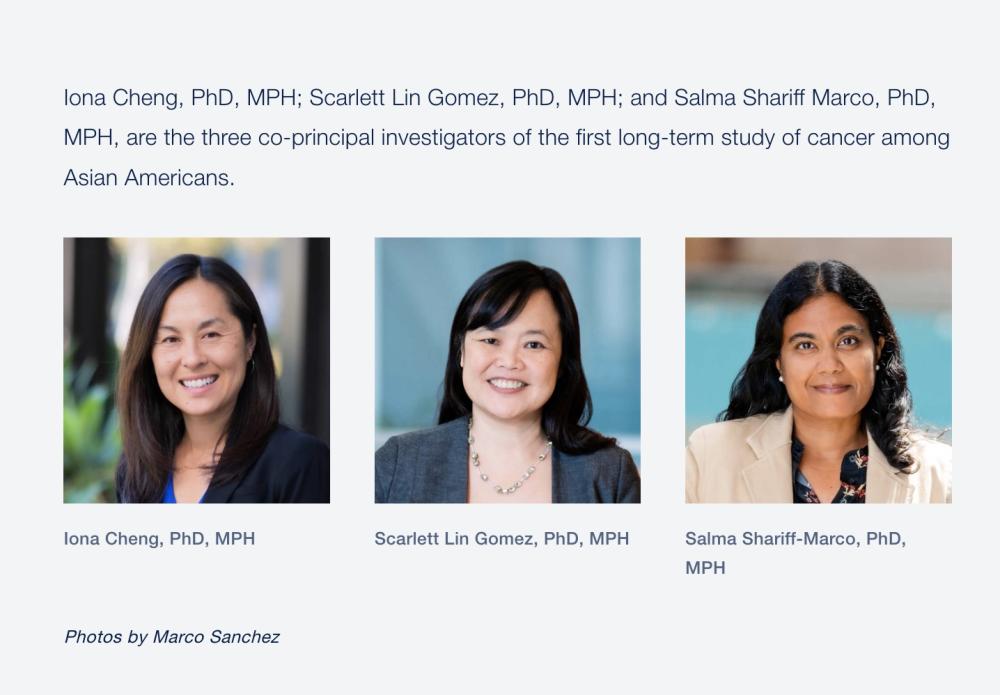
UC San Francisco researchers have received $12.45 million from the National Cancer Institute (NCI) to lead the first long-term study of cancer among Asian Americans, a highly diverse yet understudied group.
Despite a growing incidence of cancers that in some cases exceed those of other groups, there has never been a national longitudinal study of cancer in the Asian American community, and there are many open questions.
For example, the researchers are seeking to understand why Asian American women who never smoked are susceptible to lung cancer, and why Asian Americans have become the first racial/ethnic group for whom cancer is the leading cause of death.
Researchers also plan to study the increasing rates of breast cancer, especially among young Asian American women; and the relatively high rates of nasopharyngeal cancer, a type of head-and-neck cancer, in Chinese Americans; as well as liver cancer in Southeast Asian Americans; gastric cancer in Korean and Japanese Americans; and thyroid cancer in Filipino Americans.

Asian Americans are the fastest growing racial and ethnic group in the United States and comprise 7% of the population. Yet, as of 2020, less than 1% of funding from the National Institutes of Health was devoted to research on Asian Americans. A 2016 review of NCI grants found almost no studies on the causes of cancer among Asian Americans.
“The fact there’s been so little funded research in the cancer etiology of Asian Americans continues to perpetuate the sense that the cancer burden in these populations is very low,” said Scarlett Lin Gomez, PhD, MPH, co-leader of the Cancer Control Program at the Helen Diller Family Comprehensive Cancer Center, a professor of epidemiology and biostatistics, and one of three co-principal investigators of the study. “That the NCI recognized this as a major gap and will be providing funding for this historic cohort is a significant step forward.”